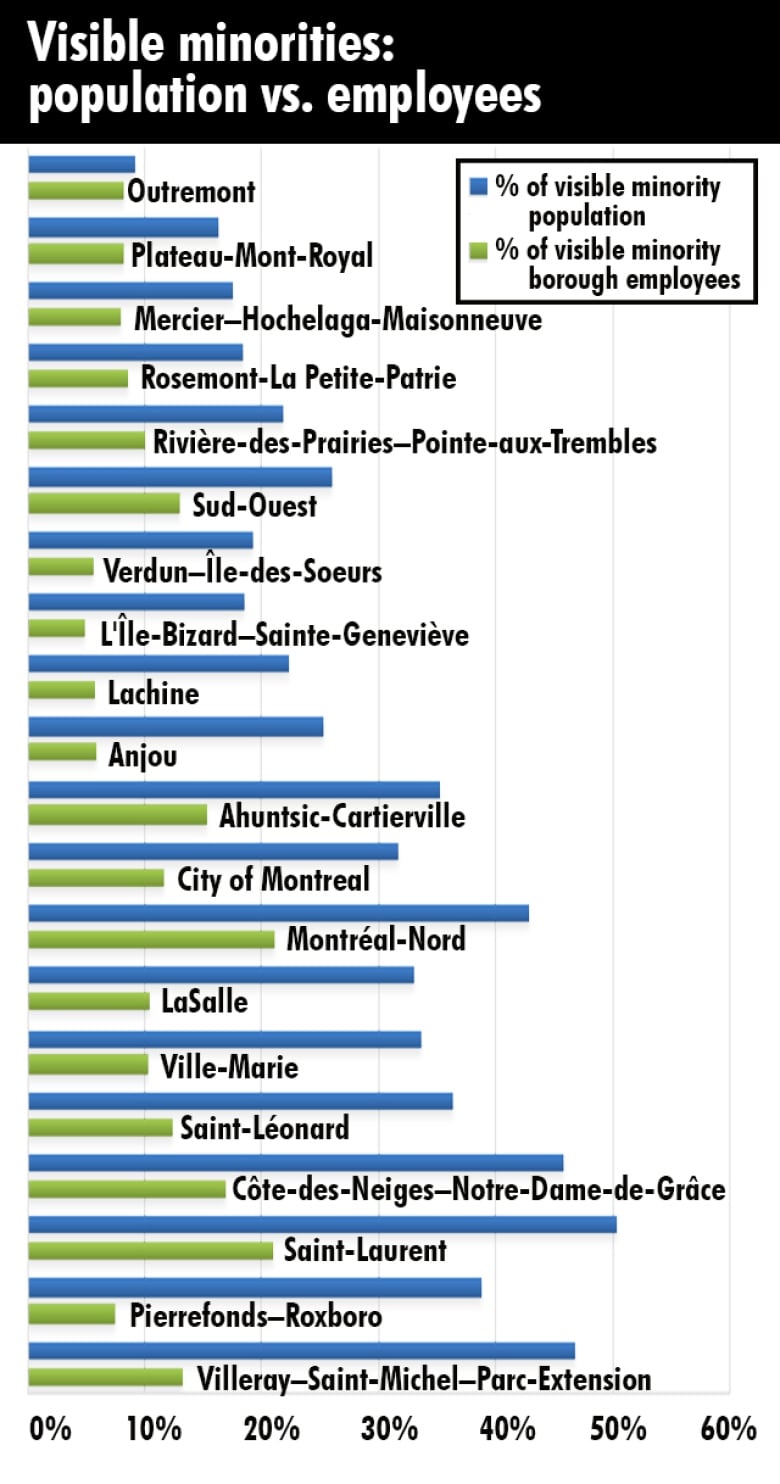City of Montreal falls short on visible, ethnic minority hiring targets
Visible minorities 31 per cent of city population, just 11 per cent of its workforce

Real Talk on Race is CBC Montreal's special series exploring personal conversations and experiences around race in the city.
The City of Montreal admits it's still well short of its goal of hiring a third of new employees from Montreal's visible minority or ethnic communities.
That target was supposed to be met by the end of 2015.
While members of those communities make up 25 per cent of new hires, overall, the statistics show the City still has a lot of work to do.
Visible minorities make up 31 per cent of Montreal's population. They make up 11 per cent of the City's workforce.
- Follow the full Real Talk on Race series
- Model minority myth: Can positive stereotyping ever be a good thing?
The federal Employment Equity Act defines visible minorities as "persons, other than aboriginal peoples, who are non-Caucasian in race or non-white in colour."
Roxane Stonely, the director of the job search centre in Côte-des-Neiges, says the people who come to her centre are often discouraged by the complexity of applying for a municipal job.
"We know that applying for the City, first you apply online, then you wait [to see] if your CV attracts somebody's attention, then you go for tests," Stonely said. "After that, if you score [well] in those tests, then maybe you'll have an interview with a person or a group interview."
"So the process is very long."
Boroughs more diverse?
Dimitrios Jim Beis, Montreal's executive committee member responsible for cultural communities, says the process to get a job is an important part of recruiting experienced employees.

"It's a benefit to Montreal to have our diverse populations represented on our workforce," Beis said.
"We see this in the different boroughs, where we have a larger portion of the workforce represented by the diverse communities."
But statistics don't bear that out.
While visible minorities make up nearly half the population of the borough of Côte-des-Neiges–Notre-Dame-de-Grâce, just 17 per cent of its workforce is made of up people from those communities.
Beis is the mayor of the Pierrefonds-Roxboro borough, where 38 per cent are the population are visible minorities, but they make up just seven per cent of the workforce.
"We still have a lot of work to do," Beis acknowledged.
"At my level, I sensitize my administration to make sure that we take that into consideration, that we choose the best possible candidate to be employed at our borough – but also to represent our population."
See how some boroughs stack up when it comes to visible minority hiring.
On the CBC app? View the interactive graphic here.
City work-sponsorship program
Beis points to the City's work-sponsorship program – which pairs, mainly, members of visible minority communities with employees – as an initiative put in place to boost the representation of people from Montreal's visible minorities in the workforce.
Nearly 400 people have been through the program, which is now in its ninth year. It leads to interns getting jobs with the City about half the time.
"It allows them to gain the expertise necessary working for a city and possibly having the opportunity to either stay with the City, but also to reach out to the larger community to find employment elsewhere," Beis said.


Graphics by: Hélène Simard
Graphics and research by: Roberto Rocha

